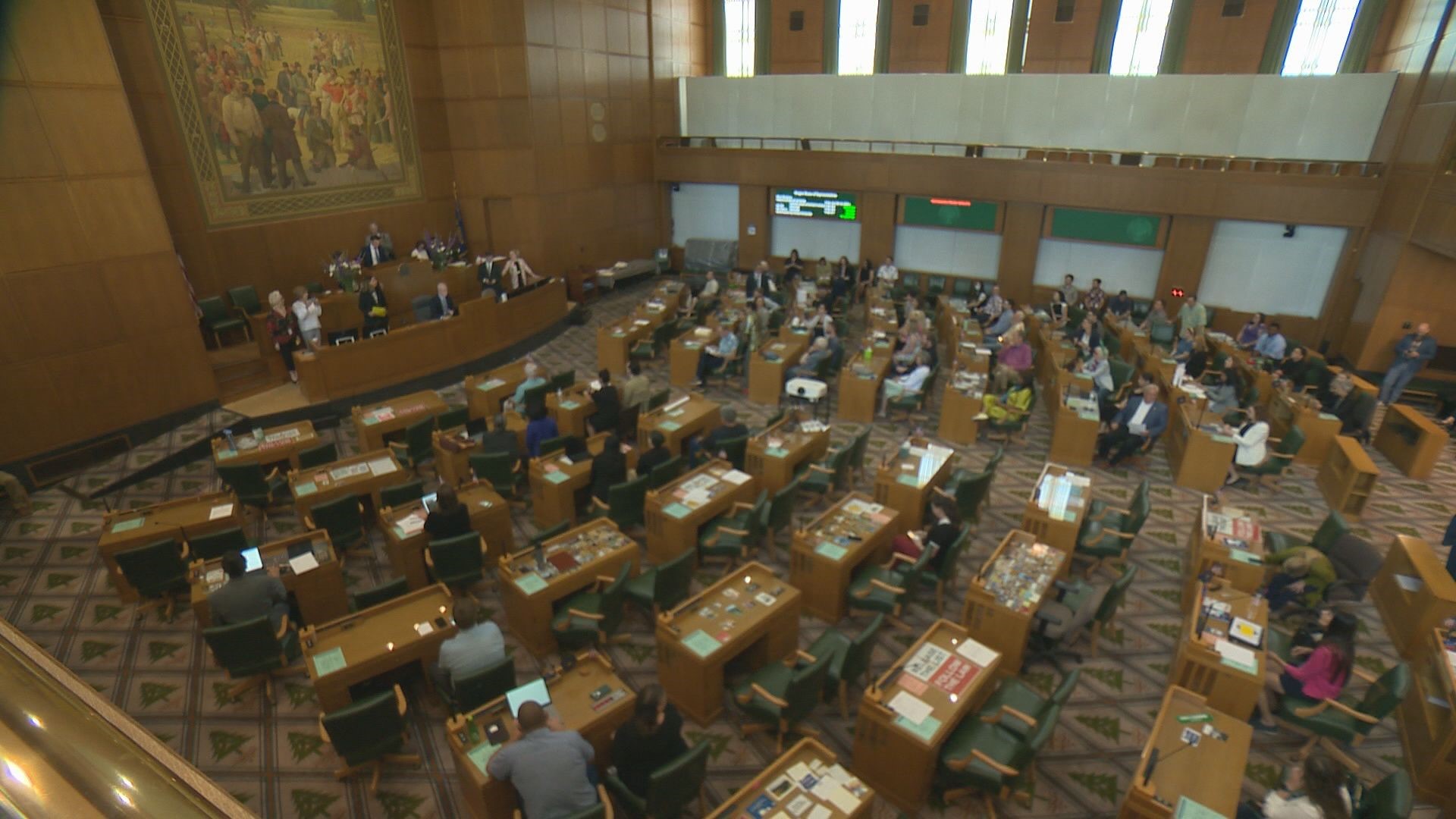SALEM, Ore. — The 2023 Oregon legislative session officially came to a close on Sunday afternoon. Lawmakers continued to power through a pile of still-pending legislation on Saturday, but any hope of an early finish for the session slipped out of reach by the end of the day. The House and Senate both reconvened one more time Sunday morning.
The Oregon Constitution limits the session to 160 calendar days, so any bills still left waiting for a vote after Sunday are dead in the water. Legislators have been sprinting for the past week to clear out the backlog that built up during the six-week Republican Senate walkout.
Sunday morning, a notable resolution was passed. The Oregon Senate passed House Joint Resolution 16 A, a constitutional amendment giving the Legislature the power to impeach statewide elected officials. This amendment will also be put before Oregon voters on the ballot during the 2024 General Election in November if signed by Gov. Tina Kotek.
House Bill 2004, which is fixated on the implementation of Ranked Choice Voting in certain elections will also be featured on the ballot.
House Bill 3632 cleared in the senate and awaits a signature from Kotek. The bill is a measure intended to increase the time in which first degree sex crimes may be prosecuted from 12 years to 20 years. Applying to offenses committed before, on, or after the bill takes effect in January 2024. The bill is not applicable to offenses if the statute of limitations already expired.
House Bill 2757 and 3426 are both directed towards addressing the state's behavioral health crisis. HB 2757 provides a stable funding source for Oregon's two 9-8-8 mobile crisis response call centers to improve services. HB 3426 requires 9-8-8 crisis hotline centers have policies and train staff on assisting emergency response personnel.
Several more high-profile pieces of legislation cleared the finish line Saturday and are now headed to Kotek's desk for her signature, including House Bill 2009, which creates new tax credits aimed at boosting semiconductor manufacturing, and Senate Bill 283, which focuses on boosting the state's teacher workforce to address K-12 staff shortages.
A pair of climate resilience bills also passed, aimed at improving the efficiency of Oregon's housing stock and making homes and buildings better prepared for extreme weather.
House Bill 2395, which will make the opioid overdose-reversal drug naloxone more broadly available, and House Bill 2572, a bill to crack down on paramilitary activity, also both passed on Saturday.
House Bill 3235, also passed on Saturday, the bill introduces a new tax credit, Oregon Kids' Tax Credit. Its a fully refundable $1,000 tax credit per child between the ages of zero to five for families earning $30,000 or less annually.
House Bill 3396, a bill that would improve staffing levels in hospitals across Oregon while developing solutions to discharge challenges also advanced. The bill also establishes the Joint Task Force on Hospital Discharge Challenge fixated on developing solutions around education, nurse/nurse assistant licensing, and appropriate discharging solutions for patient care.
Also sailing through Saturday, House Bill 3198, the Early Literacy Success Initiative expands literacy funding and support in Oregon classrooms.
Senate Bill 5511 and House Bill 3395 was passed, SB 5511 is the budget bill for the Housing and Community Service Department with an overall budget of over $2.5 billion and 441 positions, a 28.5% increase from the current service level.
HB 3395 fuses many housing-related polices into one bill and allocates $48.5 million from the General Fund to support projects within the bill.
There was also Senate Bill 611, which will set an upper limit of 10% for annual rent increases. A previous Oregon law capped rent increases at inflation plus 7%, but calls for a tighter limit erupted this year after high inflation last year led to a maximum allowable increase of almost 15%..

